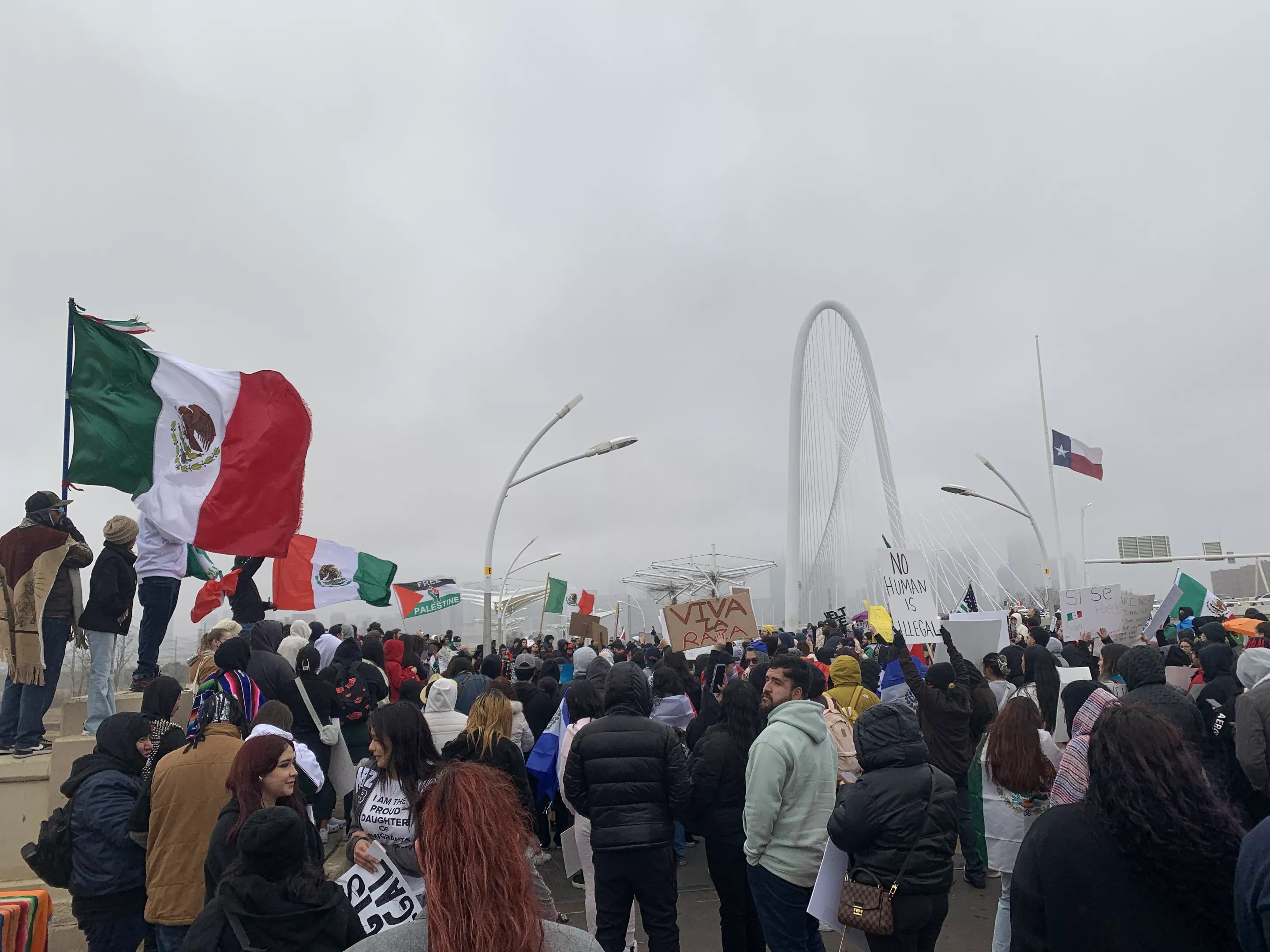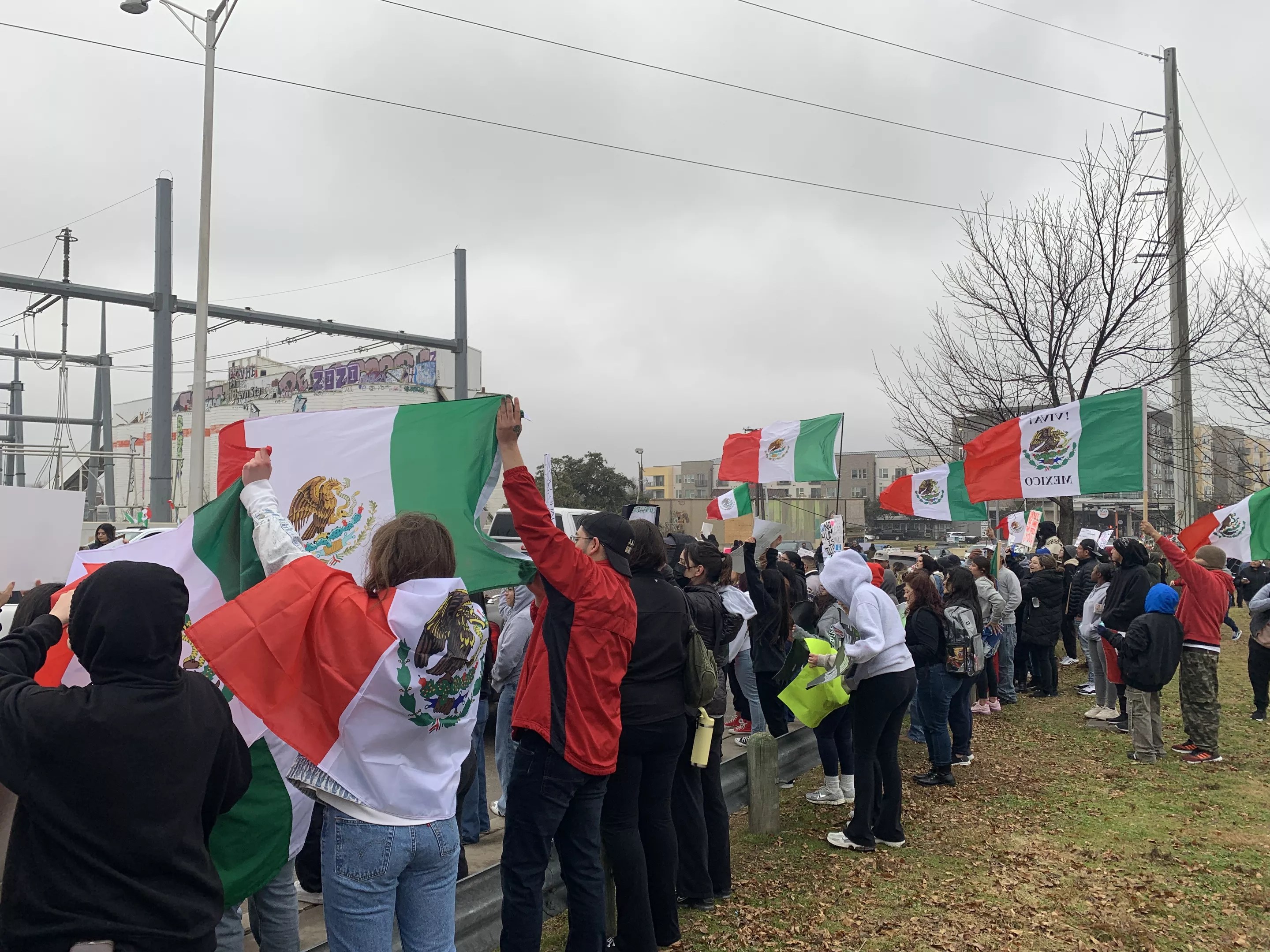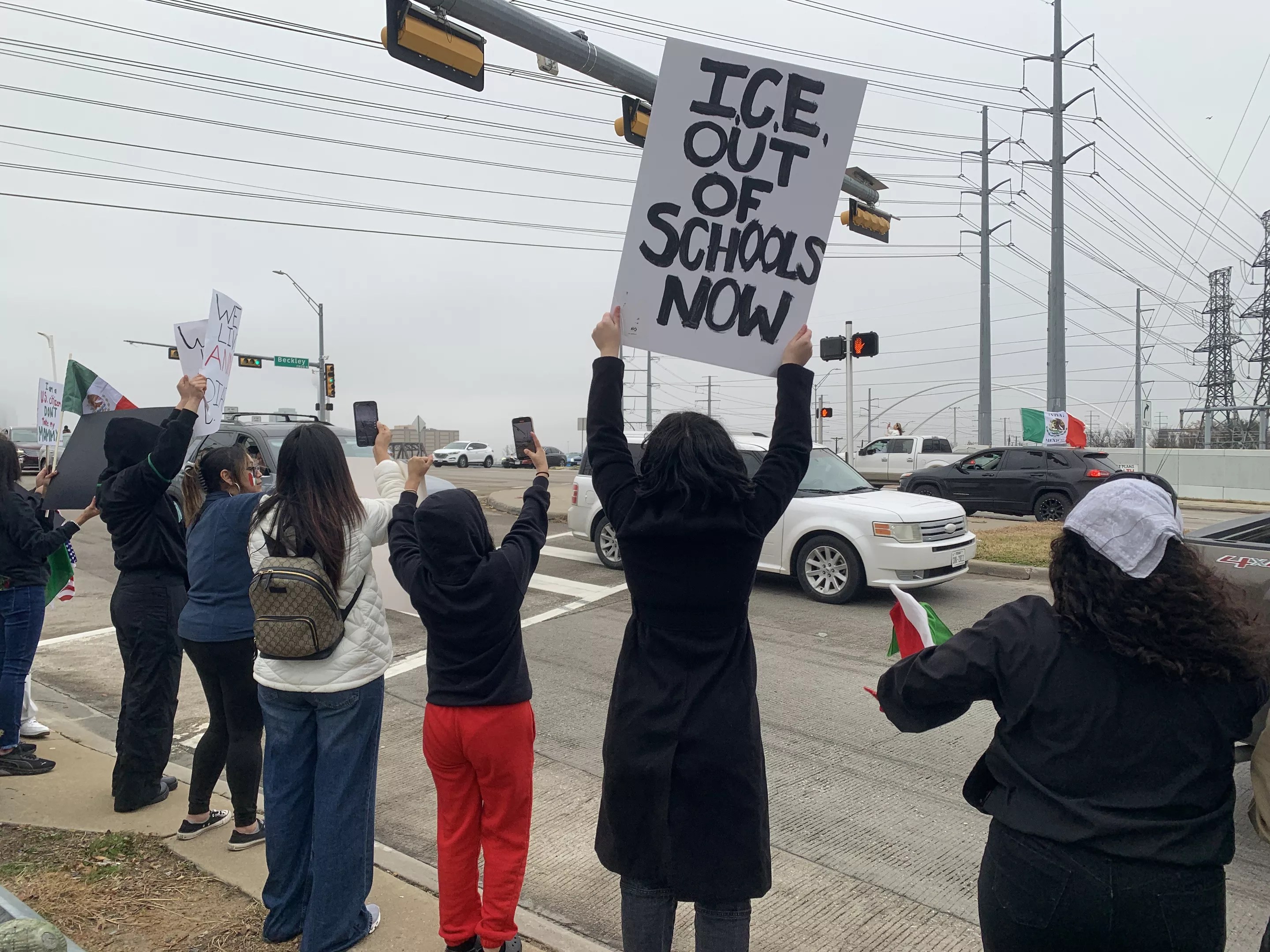
Emma Ruby

Audio By Carbonatix
As many as a thousand North Texans gathered near Dallas’ Margaret Hunt Hill Bridge Sunday afternoon in protest of President Donald Trump’s national mass deportation plan. The protest lasted well into the evening hours despite frigid temperatures, with many protesters standing wrapped in blankets and Mexican flags.
At several points, protesters overwhelmed the streets and managed to walk several blocks down Singleton Boulevard before Dallas Police navigated the crowds back onto sidewalks. The demonstration otherwise appeared to remain lawful and peaceful.
While chants of “Fuck Donald Trump,” filled the West Dallas air, U.S. Immigration and Customs Enforcement (ICE) agents carried out targeted raids throughout North Texas. According to KERA, 84 individuals were arrested by ICE agents on Sunday and are being processed in the Dallas Enforcement and Removal Operations field office. Individuals were reportedly arrested in Dallas, Garland, Irving, Arlington, Fort Worth and Collin County.
Raids in Austin and the Rio Grande Valley were also reported over the weekend.

Honks of support from passing cars elicited cheers from the crowd.
Emma Ruby
Jaqueline Castillo, a Dallas resident, attended Sunday’s rally on behalf of her parents, who are undocumented. She said a rise in anti-immigrant sentiment across the U. S. has resulted in a sense of “fear” amongst her family members.
“I am here for everyone who can’t be, including my parents who mean the world to me,” Castillo told the Observer. “Here together, it gives me strength.”
A lone counter-protester stood on the side of the road opposite the swath of protesters and carried a tall pole topped with an American flag and a flag reading “Mass Deportations Now.”
For some, specific policy issues were the motivation for joining the fray. One Dallasite who asked only to be referred to by her first name, Emma, said she looked to protest after the Department of Homeland Security rescinded long-standing protections from immigration enforcement for “sanctuary” locations such as schools and churches.

Sunday’s protest was a positive experience for Jaqueline Castillo, who was comforted by the large number of protesters who stood alongside her.
Emma Ruby
While she is against Trump’s mass deportation plan entirely, she finds the idea of immigration agents conducting arrests in schools especially egregious.
“They are children, how could they possibly have done anything to warrant that disruption to their education? I think it’s quite frankly fascist to have cops go into schools,” Emma said. “We already have so much fear in our schools because of unregulated gun violence, and to now have to worry that the government is going to come in and take you away is heinous.”
It’s a policy change that has already resulted in scrambling across North Texas districts.
Several districts have told media outlets they plan to comply with state and federal laws while also emphasizing that students’ immigration status is not documented or tracked. Federal law requires public schools to serve students regardless of immigration status, and the Migration Policy Institute estimates there are more than 650,000 undocumented children currently enrolled in U.S. schools.

Some protesters believe there is a link between Trump’s policies and fascism.
Emma Ruby
The immigration crackdowns have provoked support from some educators, though. In Fort Worth ISD, one high school substitute teacher purportedly encouraged ICE to visit their campus in a social media post, causing the district to launch an investigation into the “concerning” social media post.
“I have many students who don’t even speak English and they are in 10th -11th grade. They have to communicate through their iPhone translator with me. The [U.S. Department of Education] should totally overhaul our school system in Texas too,” X user @Hookem232 posted Friday in response to a Tweet by ICE.
Fort Worth ISD Trustee Roxanne Martinez said in a statement the educator will not be on campus while an investigation into the post is underway. The district has not publicly identified the identity of the author of the post.

Some protesters were motivated to attend after the Department of Homeland security rescinded protections for schools and churches.
Emma Ruby
Several hundred individuals also gathered in Fort Worth Sunday afternoon to protest Trump’s immigration policy.
For Corinna Ramirez, who attended Sunday’s Dallas protest alongside several friends, the planned mass deportations are deeply personal. But she also feels that Latin Americans are not the only ones who should feel threatened by what she feels is Trump’s willingness to disenfranchise minority groups.
“It starts here, but it feels like it could snowball,” Ramirez told the Observer. “Yes, right now we’re very focused on the Hispanic community, but it’s not just us. It’s not just Hispanic brown people, it’s going to impact other brown people, and other marginalized groups. So if we can try to impede it as much as possible now, it would be a great start.”